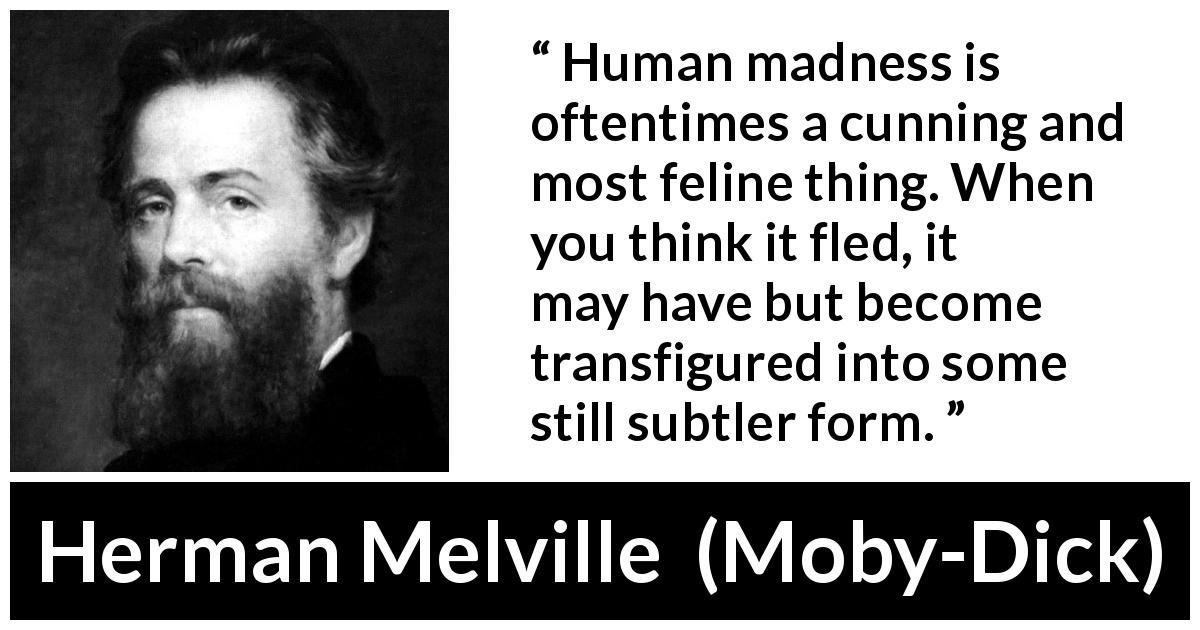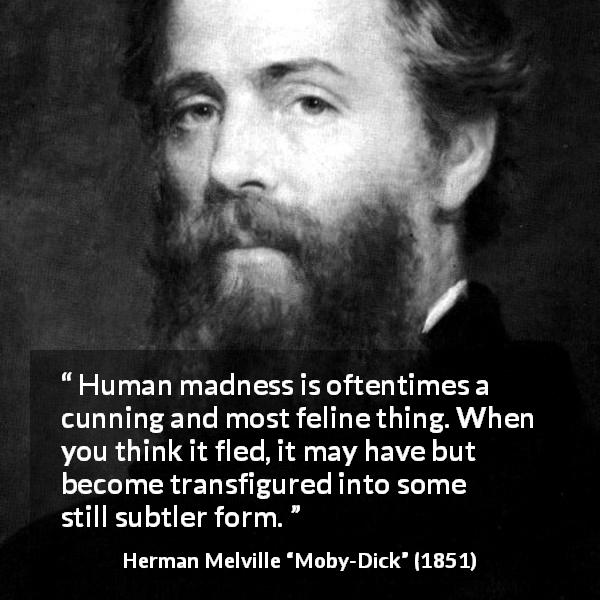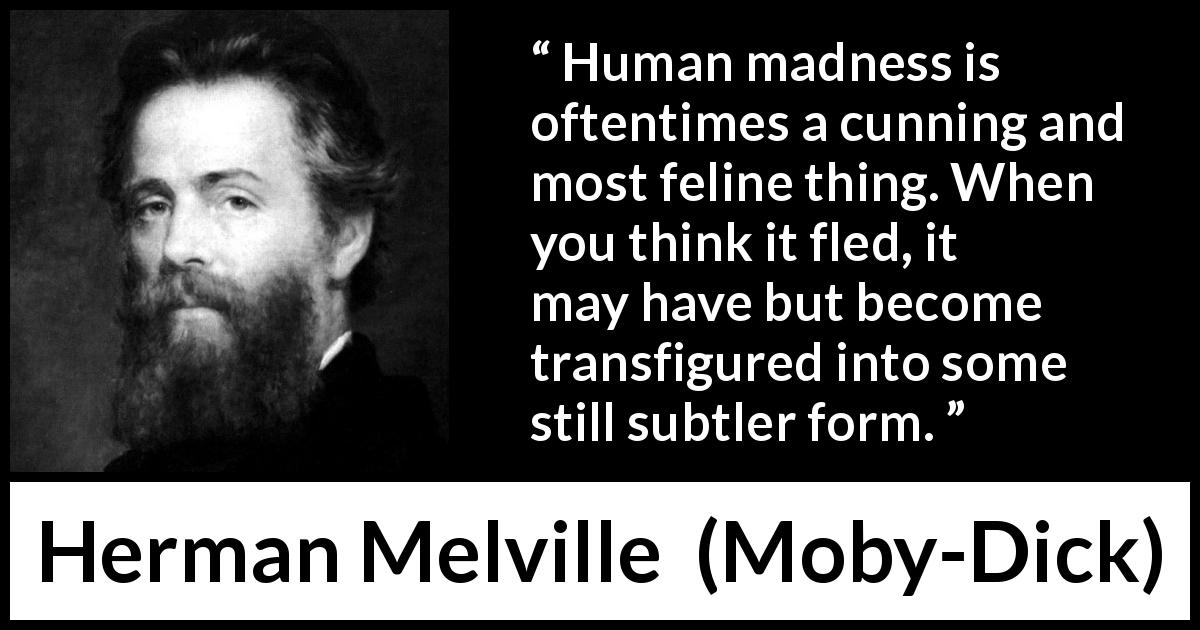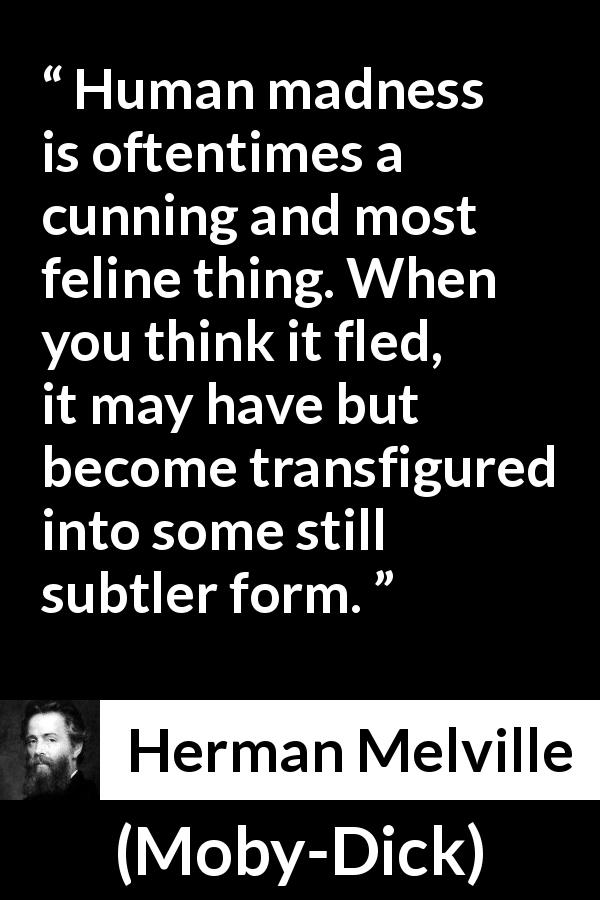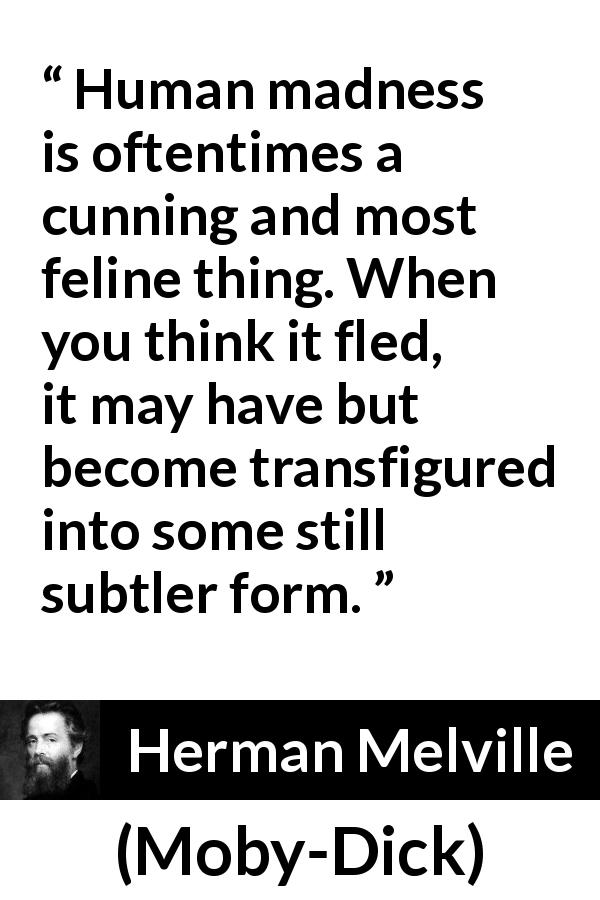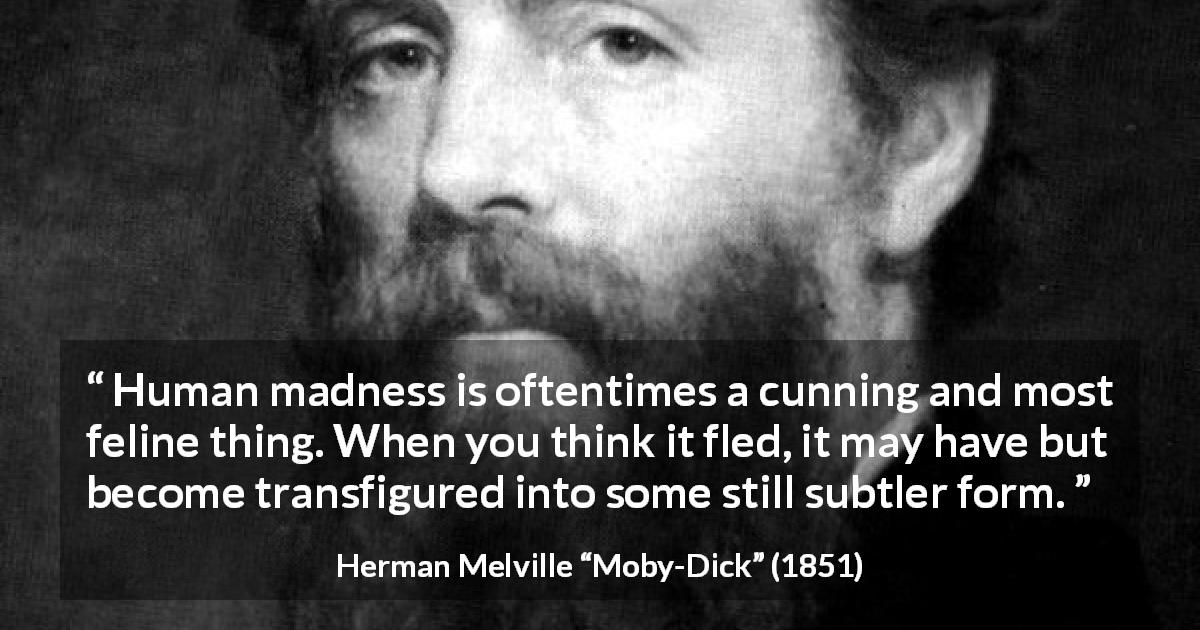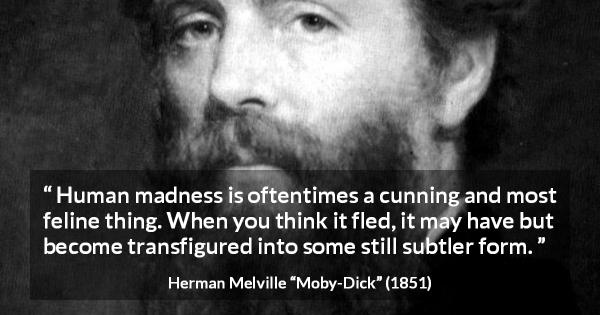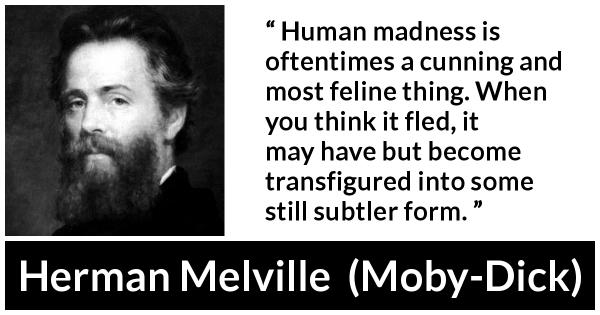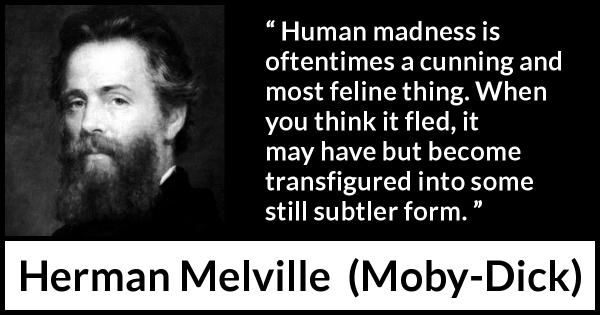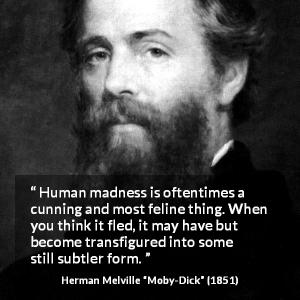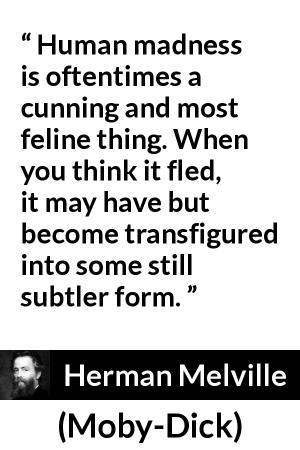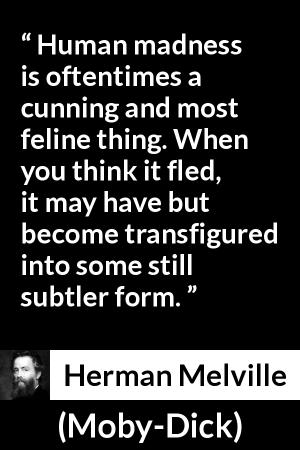“ Human madness is oftentimes a cunning and most feline thing. When you think it fled, it may have but become transfigured into some still subtler form. ”
Herman Melville, Moby-Dick (1851). copy citation
| Author | Herman Melville |
|---|---|
| Source | Moby-Dick |
| Topic | madness subtlety metamorphosis |
| Date | 1851 |
| Language | English |
| Reference | |
| Note | |
| Weblink | http://www.gutenberg.org/files/2701/2701-h/2701-h.htm |
Context
“And, when running into more sufferable latitudes, the ship, with mild stun'sails spread, floated across the tranquil tropics, and, to all appearances, the old man's delirium seemed left behind him with the Cape Horn swells, and he came forth from his dark den into the blessed light and air; even then, when he bore that firm, collected front, however pale, and issued his calm orders once again; and his mates thanked God the direful madness was now gone; even then, Ahab, in his hidden self, raved on. Human madness is oftentimes a cunning and most feline thing. When you think it fled, it may have but become transfigured into some still subtler form. Ahab's full lunacy subsided not, but deepeningly contracted; like the unabated Hudson, when that noble Northman flows narrowly, but unfathomably through the Highland gorge. But, as in his narrow-flowing monomania, not one jot of Ahab's broad madness had been left behind; so in that broad madness, not one jot of his great natural intellect had perished.”
source
